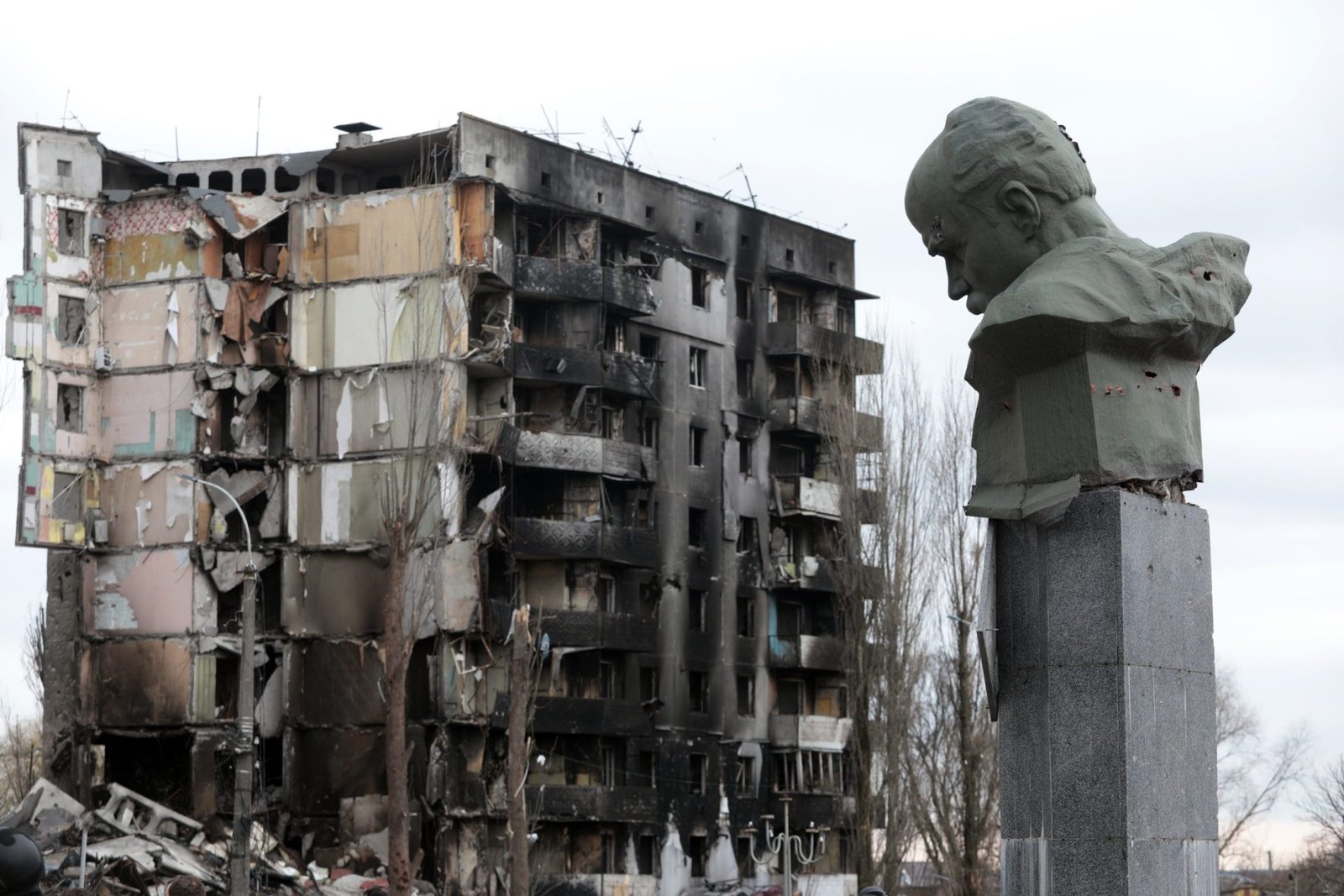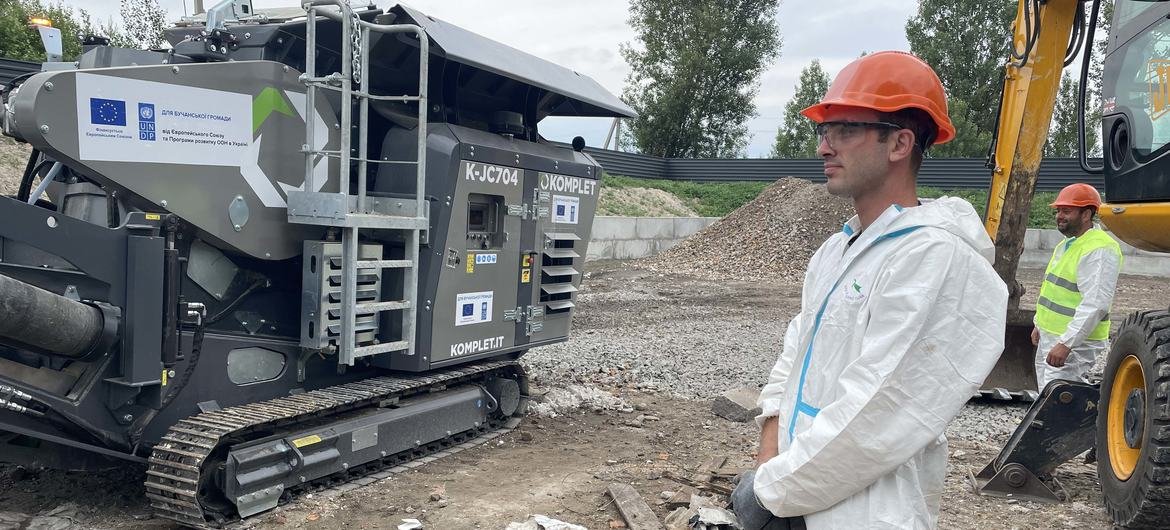Address:
8397 Pines Blvd
Pembroke Pines, FL
33024
Mon-Fri: 7 AM - 7 PM
Weekend: 10 AM - 5 PM


On June 27, 2025, the Cabinet of Ministers of Ukraine approved the national budget declaration for 2026–2028, signaling a long-awaited shift from wartime austerity to an ambitious post-war recovery strategy focused on infrastructure investment. For official details, visit the Ukraine Government website. For the global ukraine reconstruction building materials market, this announcement presents significant implications. As Ukraine prioritizes rebuilding, the need for robust supplies of essential construction materials—including steel, glass, cement, and tiles—is expected to soar.
The newly approved declaration defines two pillars of state focus: “Post-War Recovery Ukraine” and “Public Investment Reform.” With annual public spending projected to exceed UAH 3 trillion over the next three years, Ukraine is preparing to channel billions into critical public infrastructure. This includes roads, bridges, rail systems, residential housing, hospitals, schools, and energy systems—all of which require massive quantities of construction supplies. The ukraine reconstruction building materials industry will play a vital role in enabling these initiatives.
This new phase of reconstruction places Ukraine at the center of Eastern Europe’s infrastructure investment landscape. Unlike emergency aid during wartime, current investments are structured, predictable, and designed to align with long-term development goals. These public projects will rely heavily on materials that meet updated specifications—particularly in energy efficiency, seismic resistance, and sustainability.
The Ukraine building materials market is expected to grow at over 12% CAGR from 2026 to 2028. According to Statista, post-conflict regions experience rapid construction booms, and Ukraine is no exception. Strong government backing means the ukraine reconstruction building materials sector will see sustained demand growth for at least the next five years.
Key segments expected to lead growth include:
Suppliers entering the ukraine reconstruction building materials market will need to prepare for evolving compliance requirements, driven by national and EU-aligned reforms. Proactive adaptation to material specs and documentation protocols will be essential for success. You can explore related building materials solutions here.
Ukraine’s integration with the European Union is reshaping its regulatory landscape. The EU Construction Product Regulation (CPR) is now guiding how materials are classified, tested, labeled, and distributed. CE Marking, outlined in the official CE guide, is now expected for most imports. For any company seeking access to public tenders, CE-compliant building materials for Ukraine’s reconstruction are a baseline requirement.
Aligning with EU norms not only facilitates easier customs clearance but also builds trust with Ukrainian project owners. The ukraine reconstruction building materials industry is moving toward a high-transparency, high-compliance model that rewards early movers.
Ukraine is also digitizing its customs and tax operations as part of the reconstruction strategy. The 2026–2028 budget includes initiatives to modernize trade infrastructure, enhance transparency, and align with OECD digital tax standards. These shifts will especially impact the import and distribution of construction goods.
For participants in the ukraine reconstruction building materials market, this means greater customs predictability and simplified declarations. However, companies must ensure that logistics, invoices, and supply chain data are structured to meet digital compliance standards.

REALGROUP is well-positioned to enter the Ukraine building materials reconstruction market. With scalable manufacturing capacity, CE-certified products, and multilingual logistics coordination, REALGROUP can deliver fast, reliable solutions across Ukraine’s most active zones. Learn more about REALGROUP’s capabilities for post-conflict construction in Eastern Europe.
Companies like REALGROUP that localize operations or partner with Ukrainian distributors will have an advantage—not only in cost efficiency but also in public procurement scoring. This is especially true for building materials suppliers in Ukraine reconstruction tenders.
Reconstruction is not limited to Kyiv or western cities. The ukraine reconstruction building materials demand is distributed across hard-hit regions like Kharkiv, Mykolaiv, Odesa, and Donetsk. These cities will need immediate access to logistics hubs and local distributors. For strategic planning, the World Bank’s infrastructure data can help identify optimal staging points.
For deeper insights, check our article on Ukraine Building Materials Market Analysis.
The message is clear: the ukraine reconstruction building materials market is no longer theoretical—it’s in full swing. Suppliers who wait risk losing early-entry advantages. Those who act now by upgrading compliance, optimizing logistics, and engaging local partners stand to benefit from a long-term pipeline of demand.
Ukraine’s 2026–2028 budget creates a high-certainty, high-opportunity environment for qualified building materials companies. Whether through exports, joint ventures, or in-country warehousing, this is the moment to participate in rebuilding Ukraine—brick by brick, panel by panel. Contact our team today to explore supplier opportunities in this evolving market.